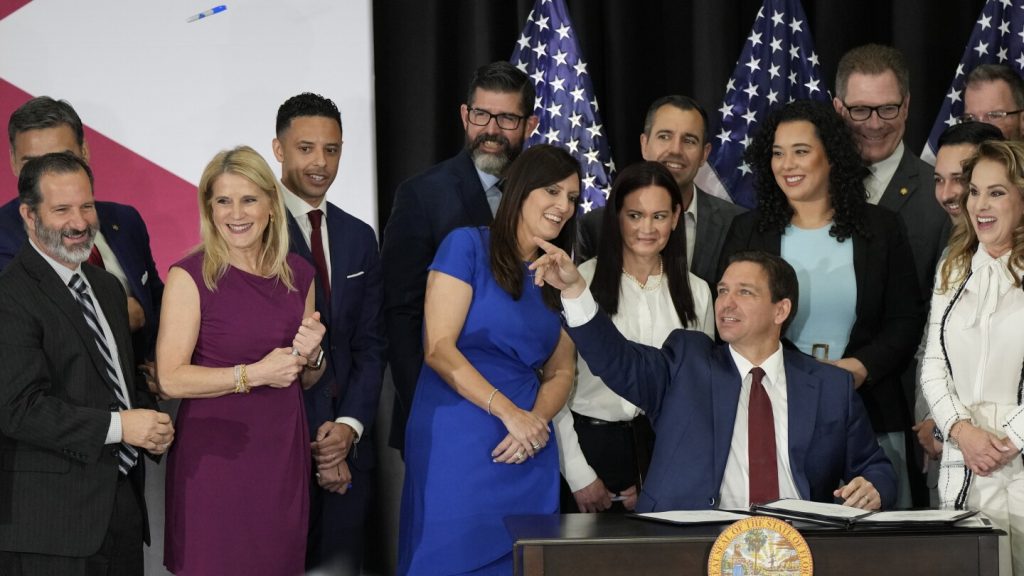Florida’s teachers unions are heading back to court in a federal lawsuit challenging the constitutionality of new requirements for certain unions. The lawsuit, brought by the Florida Education Association and county-level labor groups, challenges a law signed by Gov. Ron DeSantis in 2023 that requires more public workers to pay dues in order to keep their unions alive, while also making it harder for employees to pay those dues. Under the law known as SB 256, unions representing thousands of educators are under pressure to meet new standards or risk losing their collective bargaining rights.
The law requires certain unions to recertify if the number of dues-paying members drops below 60% of those eligible to join, and it also prohibits unions from automatically deducting dues from members’ paychecks. The goal, according to DeSantis, is to increase take-home pay for teachers. However, the law does not apply to unions representing law enforcement officers, correctional officers, or firefighters. Critics believe the law was designed to target the governor’s critics within organized labor while protecting the power of first responders who support him politically.
Leaders of the state’s teachers unions argue that the law is politically motivated and unfairly targets unions critical of the governor. They point out the inconsistency in the law’s application, with favored unions receiving exemptions while others face stricter requirements. The unions have also criticized DeSantis for his handling of the coronavirus pandemic, accusing him of prioritizing political interests over the safety of educators and students. The unions have raised concerns about the law infringing on their constitutional rights to free speech and equal protection, while giving preferential treatment to certain unions.
During Governor DeSantis’ reelection campaign in 2022, the Democratic candidate for lieutenant governor was Karla Hernández-Mats, the president of United Teachers of Dade, the union representing workers in Miami-Dade County. This highlights the close connection between labor organizations and political figures in Florida. In the ongoing legal battle, attorneys for the labor groups argue that the law creates an arbitrary distinction between favored and disfavored unions, with no clear policy justification. The unions are challenging the law on constitutional grounds, alleging that it unfairly burdens certain unions while exempting others.
The trial scheduled to begin in Tallahassee will delve into the constitutionality of the law and its implications for the rights of workers to organize and engage in collective bargaining. The outcome of this case could have significant ramifications for labor organizations in Florida and beyond. The teachers unions are determined to defend their rights and push back against what they see as a politically motivated attack on their ability to advocate for their members. As the legal battle unfolds, the broader debate over labor rights and government intervention in union activities will continue to shape the landscape of labor relations in Florida. It remains to be seen how the court will rule on this contentious issue and what impact it will have on the future of organized labor in the state.


